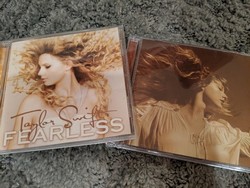Dollar Big Macs after midnight. Phat Spruces. Chicken Quesadillas and Steak Burritos. These all become things of the past once you convert to a vegetarian diet, but do not stop for a second to think this diet will come without great benefits. A plant-based diet not only contributes to better health and weight management, but also it benefits the environment. For individuals who have an extensive taste for different foods, a vegetarian diet on the University’s campus is feasible.
According to the Journal of the American Dietetic Association (2009), a vegetarian diet is linked with low blood cholesterol levels and reduced risk of heart disease, hypertension, and type 2 diabetes. Furthermore, a vegetarian diet is typically associated with a lower Body Mass Index (BMI), and lower cancer rates.
As less red meat and more plant-based foods are eaten, a vegetarian consumes less saturated fats and cholesterol, which are only found in animal-products. Vegetarians also take in more dietary fiber, magnesium, phytochemicals, and vitamin C than non-vegetarians.
Many fear a vegetarian diet because they believe deficiencies are developed in areas such as protein, iron, and vitamin B-12. However, Mary Harris, Director of the Monmouth Area Vegetarian Society (MAVS) and specialist communication professor, described the protein deficit as a misconception when stating, “Most of what the general public has been taught about protein requirements in general is a myth. Protein can be found in all plant foods”. Harris continues, “Some sources of protein include: lentils, chickpeas, black beans, tempeh, nuts and seeds, tofu, seitan, quinoa, oats, peas, spinach, broccoli, and the list goes on and on”. Additionally, many foods today are fortified with nutrients.
Another myth about vegetarian diets is that they are more costly. However, Dr. Null and Dr. Feldman refute this myth in the Townsend Letter. They write, “… A consumer may pay more than five times the price for steak (versus a loaf of whole-wheat bread), a food that does not rival its cheaper counterpart in terms of nutritional value and fiber content”. A healthier diet that can be less expensive may be more alluring to a college student with a dearth of money.
There are several motivations for becoming a vegetarian. Some do it for health while others do it for environmental or ethical reasons.
The Vegetarian Resource Group indicates that the livestock industry is the leading consumer of fresh water. Plenty of water is used for livestock drinking and bathing, but most of this water is used to grow the livestock’s food. More than one third of the world’s grain is used to feed livestock; it is interesting to consider how this food could be used to feed over 842 million humans suffering from hunger, a statistic provided by the World Food Programme.
Many people care about animals, but chances are that many do not know what truly happens in slaughterhouses, places that are notorious for inhumane treatment of animals. Vegan Outreach, a nonprofit organization, works to reduce the suffering of farmed animals by promoting informed, ethical eating. It offers booklets and information to people who want to contribute to the cause. The Adopt a College (AAC) program, started by Vegan Outreach, encourages advocates to distribute pamphlets to students on how to eat animal-friendly meals.
Meatless Monday is a program that encourages people to try meals with different grains, fruits, or vegetables and to avoid meat by providing different vegetarian dishes each Monday. Johns Hopkins and Syracuse University are two of many institutions participating, along with organizations in 29 other countries. Meatlessmonday.com states that “Skipping meat one day a week is good for you, great for your nation’s health, and fantastic for the planet”. How would the students react if the University was to participate in this campaign?
When thinking about starting a vegetarian diet at the University, it seems that one is in good hands. The Magill Commons Dining Hall on campus offers specific dishes labeled as vegetarian. Cereal, salad, fruit, pasta, vegetables, and pizza are also always available, along with an online menu of food to be served that week.
Shadows, the late night dining restaurant, offers foods like veggie burgers, fries, and meatless Phat sandwiches, like the Phat Elm (Mozzarella sticks, jalapeno poppers, curly fries, mozzarella cheese, lettuce, tomato, mayo, and ketchup).
The student center offers a conglomeration of meatless choices, from soups (specifically labeled) and salads, to a meatless burrito bowl with guacamole. Jersey Mike’s offers The Veggie sandwiches, and veggie burgers are available from the grill. Pizza and pasta are also constantly available. Elisha Lee, a senior vegetarian student who utilizes the Student Center food court, states, “I believe I am consuming all the essential nutrients with the food available on campus”. She then continues, “It’s more so about knowing how to eat as a vegetarian and knowing what you need to include in your diet to stay healthy rather than just cutting out meat and not replacing it with anything else.”
Julie Schaaff, a health studies professor, mentions the term “carbo-tarians,” defined as a poor vegetarian diet that consists mainly of bread, cheese, and fruit. She continues, “If you want to become a vegetarian, you must be willing to commit to the “vege” at the beginning of the word. To get the essential nutrients needed to support a healthy lifestyle, you have to be willing to eat a variety of vegetables and plant products everyday.”
Unfortunately, not everyone is pleased with the selections offered at the University. Sarah Coff, a junior and vegetarian, is pickier when it comes to the food offered. Coff states, “When I am at home I can eat things like tofu and other meat substitutes, but they don’t have that here (in the Student Center)”. Lee also agreed that tofu would be a great addition to the student center. Perhaps Aramark should survey the demands for meatless products offered in the Student Center.
According to a Gallup Poll in 2012, five percent of Americans consider themselves vegetarians. Is it the apathy or ignorance of diet? Or are the carnivorous options available too scrumptious to pass on? Megan Squires, a registered dietitian and nutrition professor, believes in one’s personal choice of diet, but she recommends “that we all increase our intake of plant sources of protein like beans, legumes, nuts and seeds and decrease our intake of saturated fats and added sugars.” Eliminating meat from our diets completely may seem like too huge of a leap, but as we begin to limit our meat consumption, we can better benefit our longevity, health, and the environment.



